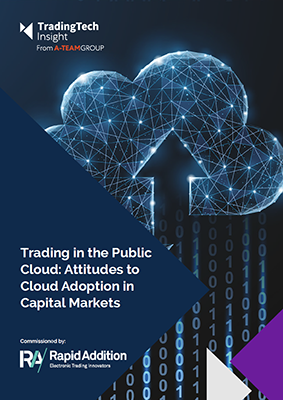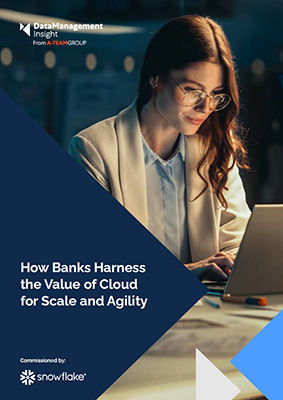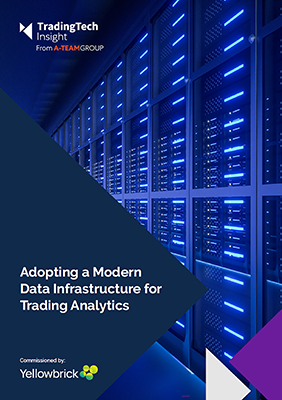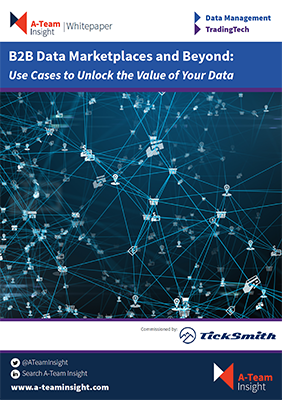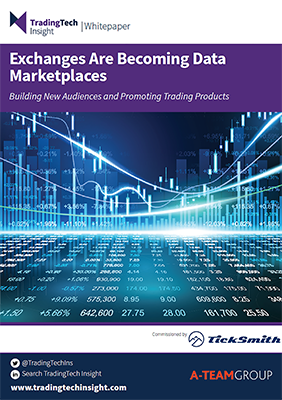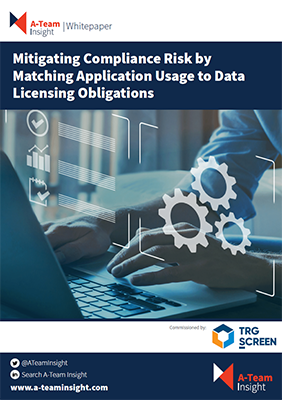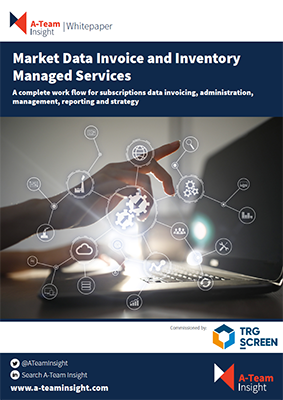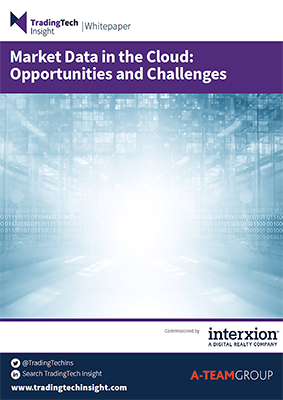TradingTech Insight White Paper

Editor’s pick
Getting Control of Access to Key Market Services
Use of single dealer portals that allow banks to trade assets on behalf of their clients is growing rapidly, particularly among firms in the fixed income and foreign exchange markets in particular. But while trading portals offer great benefits in terms of broader market reach and enhanced client functionality, they bring risks too. Firms are...
DownloadInteroperability and AI in Trading Workflows
Emerging capabilities in AI and interoperability are transforming trading workflows, with the promise of heightened levels of collaboration and personalisation resulting in greater efficiency and performance. The potential of these new technologies is encouraging financial firms to modernise their trader desktops and streamline operational processes. With AI and generative AI (GenAI) in particular still nascent...
Trading in the Public Cloud: Attitudes to Cloud Adoption in Capital Markets
Capital markets have been slow to embrace cloud technologies and in particular the public cloud. Practitioners have been wary of issues around speed/performance, privacy and cost, all of which can dampen the appeal of cloud technologies for trading firms. But broad acceptance of cloud beyond finance is highlighting some compelling benefits, primarily in terms of...
How Banks Harness the Value of Cloud for Scale and Agility
Financial services are recognizing the benefits that data-led processes can bring and are undergoing digital transformations that are putting data at the heart of their operations and decisions-making processes. They are seizing on data as an asset whose value can be unlocked through technology to increase revenue and reduce costs across the entire enterprise. With...
Adopting a Modern Data Infrastructure for Trading Analytics
As they seek an edge in their trading and investment activities, hedge funds and other sophisticated trading firms are looking to harness new sources of insight that can allow them to identify and exploit emerging market and industry opportunities. But many organizations are saddled with a disconnected sprawl of legacy systems that are unable to...
Benefiting from Advanced Execution in US Treasury Markets
The expanded footprint of electronic non-bank liquidity providers (NLPs) and established broker/dealers, as well as the proliferation of electronic aggregation platforms, are all adding complexity to fixed-income markets, which as a result are starting to resemble established electronic markets like equities and foreign exchange. For market participants, this has added to the challenge of sourcing...
B2B Data Marketplaces and Beyond
Financial institutions and corporations often generate huge quantities of data as a by product of their core activities. This data – details of historical transactions, customer interactions and metadata for referring to instruments, counterparties or entities – can provide valuable insights for industry participants, and form the basis of a meaningful data sales business. But...
Exchanges Are Becoming Data Marketplaces
Exchanges and other trading venues have long derived revenue from sales of their data; in some cases they operate substantial businesses based around sales of their real-time quotes and other market data services. But few are well set up to deal with growing demand for other datasets they may generate from their core activities, such...
Mitigating Compliance Risk by Matching Application Usage to Data Licensing Obligations
As financial institutions consume more market data from more sources than ever before, the task of administering external data services is growing both in complexity and scale. At the same time, data services are increasingly consumed by applications rather than humans, and these applications often consume more data than humans and produce derived data. As...
Market Data Invoice and Inventory Managed Services
Financial institutions are subscribing to an ever-growing list of information services in their efforts to keep abreast of increasingly complex global markets. This is adding to the burden of managing relationships with existing data vendors, whose licensing agreements and invoices are also growing in complexity. Firms’ appetite for cloud-delivered services and the trend toward working...
Market Data in the Cloud: Opportunities and Challenges
Financial institutions are buying into the promise that the scalability and elasticity of cloud solutions will prove to be more cost-effective than on-premise implementations. As firms migrate what they can of their technology infrastructures to the cloud, they are starting to include market data delivery and ingestion systems – long considered too critical to be...


